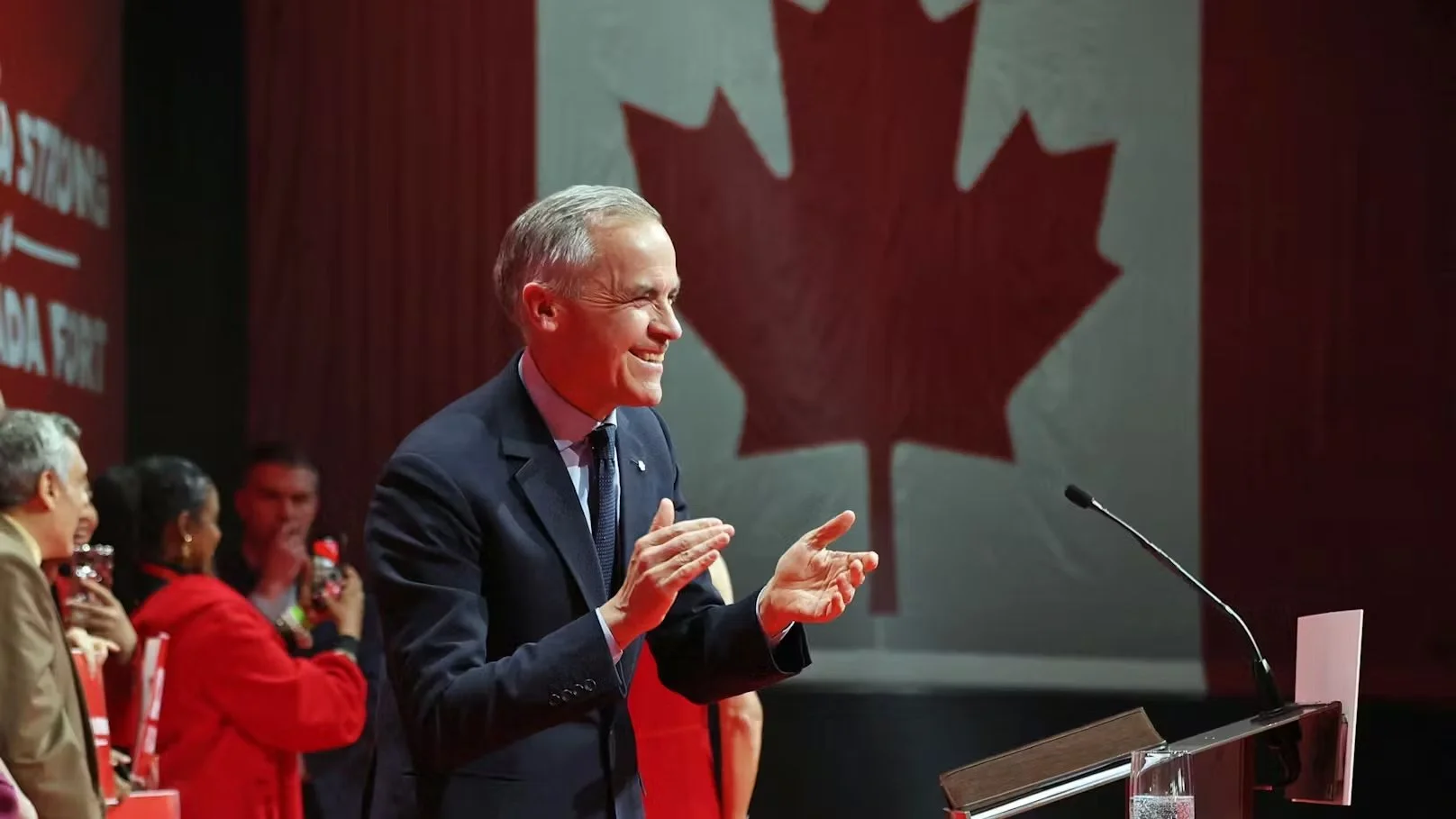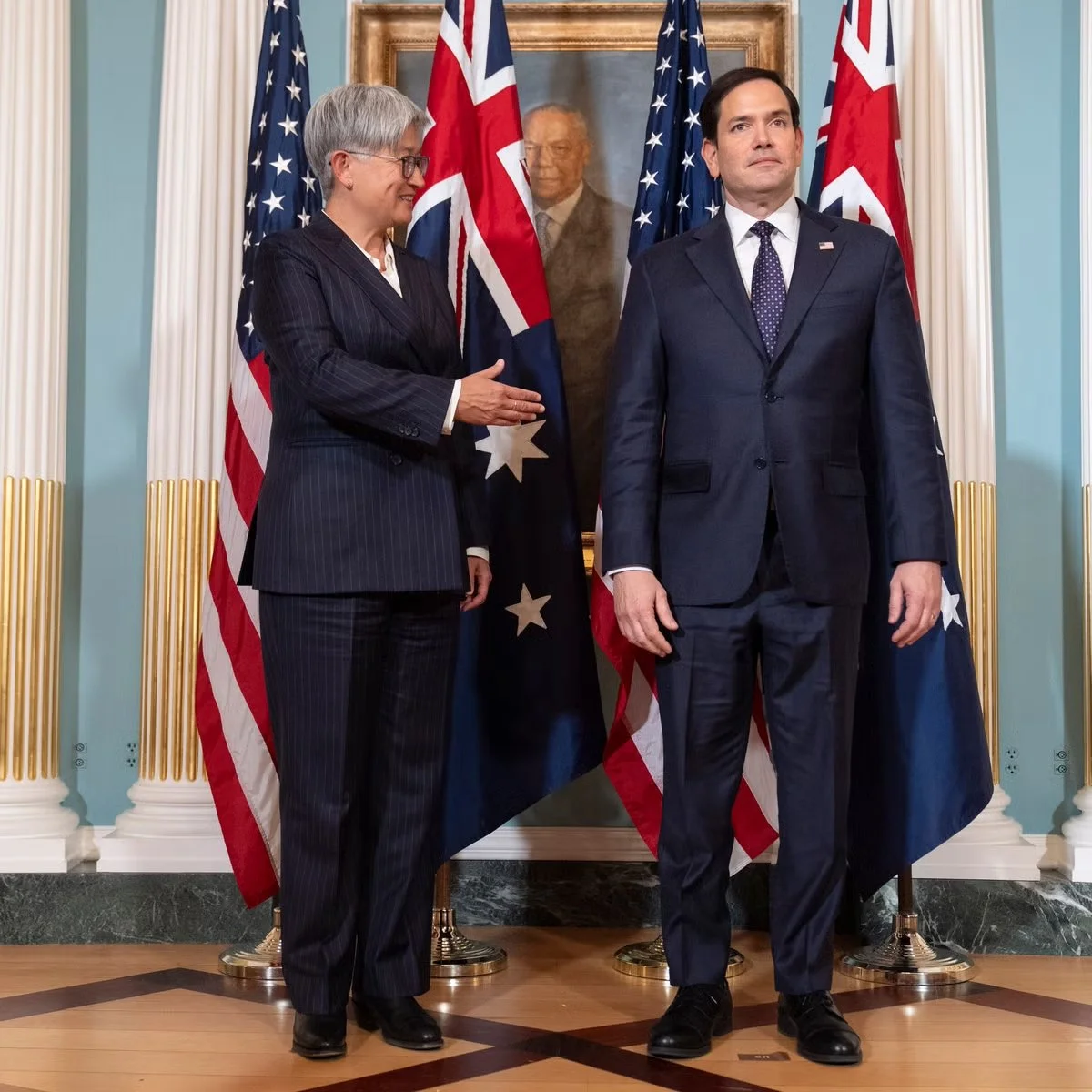The Effect of Trump on Foreign Electorates
How Tariffs are Shaping Canada’s Ballot Box
Since assuming office back in January, Donald Trump has made tariffs a central part of his economic offering, under a broader vision of ‘America First.’ He argues that these tariffs will boost the domestic economy, by encouraging American consumers to buy more domestically made goods. Additionally, the US will be enabled to haggle for better trading terms abroad by closing the gap between the value of goods typical US imports, versus those it exports to other countries. Notably, the trade deficit of $213 billion (£160 billion) with the European Union in 2024, which President Trump labelled an “atrocity.” Among Trump’s first targets of these tariffs, however, were China, Mexico, and Canada - in a bid to reduce the flow of migrants and drugs into the US, according to Trump. Economists have warned from the outset that these measures would harm American consumers by raising the prices of imported goods – such as food, fuel, alcohol, and cars – which reduces competitions and allows domestic producers to also increase their prices. A less anticipated consequence however is a dramatic shift in Canada’s domestic political landscape.
Canada is perhaps the most politically controversial of all the President’s targets. Alongside tariffs have been the subject of persistent remarks from the President about Canada becoming the 51st state. A statement, which although initially assumed by some to be a ‘fleeting soundbite,’ with references to then-Prime Minister as ‘Governor Trudeau,’ has progressively come to gain traction as an underlying indication of genuine intent of threat to Canada’s sovereignty. Especially against a backdrop of broader conversations concerning the Trump administration’s new approach to foreign policy. Trudeau, who tendered his resignation as Prime Minister back in January amidst intense internal pressure, alerted voters of the gravity of such threats. These threats, he believes, are fuelled by a desire for access to Canada’s critical minerals - telling a Canada-US Economic Summit in February, “Mr Trump has it in mind that the easiest way to do it is absorbing our country and it is a real thing.”
Unsurprisingly, this proposition of an American annexation of Canada, accompanied by a barrage of fiscal impositions, including a 25% tariff on all Canadian exports bar energy, has not been well received North of the border. Canadian leaders were quick to offer condemnation, with Trudeau labelling the tariffs as “totally unjustified”, followed by a defensive implementation of retaliatory tariffs, marking the beginning of a trade war between the two supposed allies. This stance has fostered a wave of patriotism among Canadian citizens and businesses alike. They have rallied behind their government and retaliated with their own form of political consumerism, boycotting American goods, in favour of rallying behind the ‘Buy Canadian’ movement - a sentiment echoed and encouraged by Trudeau. In a similar fashion, when Canada secured a narrow one point victory over the United States in a National Hockey League tournament back in February, Trudeau was quick to take to social media, tweeting “[y]ou can’t take our country – and you can’t take our game,” leaving little speculation as to who he could he could be responding to.
The hockey analogies did not end there and have in fact come to dominate conversations about this increasingly turbulent relationship between the two neighbours. The phrase “Elbows Up” in particular has gained momentum, trending both online and in protests. It originates from Canadian hockey legend Gordie Howe, renowned for his physicality and toughness in the sport, but has now come to represent an anti-Trump political rallying cry for Canadians. Canadian celebrities have been the latest to lean into this rhetoric, including comedian Mike Myers when he appeared on Saturday Night Live, donning a “Canada is not for sale” t-shirt and pointed to his elbows as he mimed the phrase. Perhaps most notably however, at the Liberal leadership convention which marked the handover of Canada’s new PM, Mark Carney stated “Americans should make no mistake: in trade, as in hockey, Canada will win.”
It has become increasingly clear however, that these sentiments run much deeper than mere political rhetoric - they are fundamentally reshaping Canadian priorities. This comes at a time when just nine days after assuming the position of Prime Minister, Carney triggered a snap election, sending Canadians to the polls in just over a month’s time on April 28th. Polling on the likely result of a general election just a few months ago had, the resounding prediction of a comfortable Conservative party victory. Trump has fundamentally reset this election. Current polling suggests “dealing with US relations/President Trump” has assumed top position voters’ minds, even surpassing economic issues of inflation and affordable housing, previously poised to be election winning issues for the Conservatives.
At the time of his resignation in early January, Trudeau’s approval ratings had settled at their all-time low of 22%, due to a saga of often self-inflicted scandals, pandemic repercussions, rising food and housing prices, slowing public services, and general fatigue with the incumbent Liberal government under his leadership. The centre-right Conservative Party, led by Pierre Poilievre - the primary opposition party - had capitalised effectively on political messaging, tying these issues which have dominated the Canadian voters’ psyche for the last few years to Trudeau’s government and policies, labelling his time in office as a “lost liberal decade.” Until recently, such a strategy had afforded the Conservatives a 20-point lead in the polls since mid-2023. In the face of an ongoing trade war, however, a very different picture has emerged: an electoral tide flow has seen a resurgence in support for a previously withering Liberal party, which has managed to strategically position itself as the party willing to stand up to American threats to Canada’s economy, sovereignty, and security - reflected in the polls which now suggest the two main parties are neck and neck.
Eliminating carbon taxes, and approving cost of living, once at the centre of a winning Conservative campaign, have taken a backseat considering the threats to economic security and sovereignty. On these issues, Carney has come out strong, offering forceful rebukes to US aggression from the outset. This is not the only anti-Trump sentiment the Liberal Party has capitalised on. Seen before as a perhaps unwanted continuation of Trudeau, it is precisely the sober ex-central banker persona embodied by Carney that the Liberal Party is strategically framing as the antithesis of the era of populism personified by Trump. In contrast, Poilievre has suffered from comparisons drawn between Trump and himself, whose somewhat populist playbook is striking a discordant note amongst Canadians who don’t want simple answers to complex problems.
In Canadian federal elections, as in the United Kingdom, voters do not vote for a Prime Minister but rather a party. While the spotlight has been primarily on these two candidates, it is not a two-horse race. The four other main parties are the New Democrats (NDP), the Bloc Québécois (who only run candidates in the French-speaking province of Québec), the Green Party, and the People's Party of Canada. The implications for these parties, polls suggest, is a migration of voter’s primary from the NDP towards Carney as part of a broader coalition rejection of the Conservatives.
Whether this boost will hold through to election day remains to be seen. But one thing is clear, Canada’s political landscape is in many ways being reshaped by the ripple effects of Trump’s trade war. While the direct economic impacts of US protectionism have spurred a more assertive economic posture, they have also ignited a deeper cultural and political response. Canadians seem to be leaning into a form of thoughtful nationalism—a rejection of populism and a growing appetite for competent leadership in the face of American threats. This environment has created fertile ground for figures such as Carney, who have come to represent the reassertion of Canada’s globalist yet independent values.
Image courtesy of Dave Chan via Heute, ©2025. Some rights reserved.
The views and opinions expressed in this article are those of the author and do not necessarily reflect those of the wider St. Andrews Foreign Affairs Review team.



